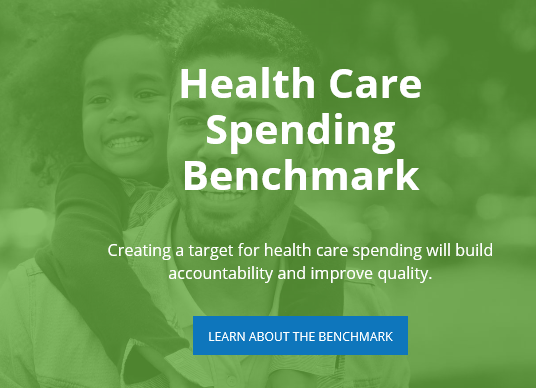NEW CASTLE (July 26, 2018) – As part of the State Innovation Model (SIM) initiative, the Delaware Health Care Commission is seeking applications from Delaware health care providers for one-time, value-based payment reform mini-grants to grow their capacity to integrate data, improve the coordination of patient care or increase their readiness to integrate into a total cost of care or Alternative Payment Model (APM).
The Delaware Health Care Commission is prepared to award up to 10 applicants in amounts ranging from $25,000 to $250,000 through the Value-Based Payment Reform Fund for work that must be completed or services procured by Jan. 31, 2019. Mini-grant applicants must be primary care providers, behavioral health providers, hospitals, Accountable Care Organizations (ACOs), Federally Qualified Health Centers (FQHCs) or clinically integrated networks, and must be licensed in the State of Delaware. Bidders may apply for multiple projects. The Health Care Commission expects to award grants for small projects (up to $50,000) and large projects (up to $250,000), based on the scope of the project. Applications are due no later than Aug. 30.
“These one-time mini-grants offer a great opportunity for health care providers in Delaware to conduct pilot projects in the area of value-based payment reform,” said Department of Health and Social Services (DHSS) Secretary Dr. Kara Odom Walker, a board-certified family physician. “To embrace this change, we urge providers to test out collaborations or partnerships in the areas of data integration, care coordination or readiness to integrate into an ACO or an Alternative Payment Method.”
“In our continuing work with the State Innovation Model, the Health Care Commission has embraced innovative ways to help practices succeed in the changing health care delivery environment,” said Dr. Nancy Fan, Chair of the Delaware Health Care Commission. “These mini-grants, along with the ongoing work through our practice transformation vendors, give us practical ways to help facilitate that change.”
Applications must be made in one of three areas:
- Data integration: Project must enhance the applicant’s data integration, clinical informatics or population-based analytics capabilities. Examples include data exchange infrastructure and analytics projects or support; data warehousing and reporting capacity; and development of data-sharing agreements.
- Improve the coordination of patient care: Project must enhance the applicant’s clinical integration. Examples include conducting data analytics and developing care guidelines for a primary care-based system of complex care management for high-risk population(s); implementing improvements in care transitions such as new business processes or mutual agreements with partner providers; and implementing a practice support call center.
- Increase readiness to integrate into an Accountable Care Organization (ACO) or operate through an Alternative Payment Method (APM): Project must develop, expand or enhance the applicant’s shared governance structures and organizational integration strategies, linking the applicant with ACO leadership and across the continuum of care with providers already contracted with an ACO. An example would be support to model costs of care in preparation for participation in value-based payment arrangements with multiple payers.
“The Delaware Center for Health Innovation (DCHI) is a public/private partnership, supporting innovative changes in the way health care is delivered and paid for in order to drive quality and better health for all in our state,” said Julane Miller-Armbrister, executive director of DCHI. “We encourage Delaware health care providers to apply for these mini-grants as a way to pilot their ideas for comprehensive reform.”
Applications will be evaluated and considered as they are received, with the final notifications of award coming by Sept. 30. For potential applicants, the Health Care Commission will host a Q&A session via conference call at 2 p.m. Aug. 9. Please email DHCC@delaware.gov for call-in information. All questions and final applications also must be submitted by email to DHCC@delaware.gov.
 DHSS first launched
DHSS first launched